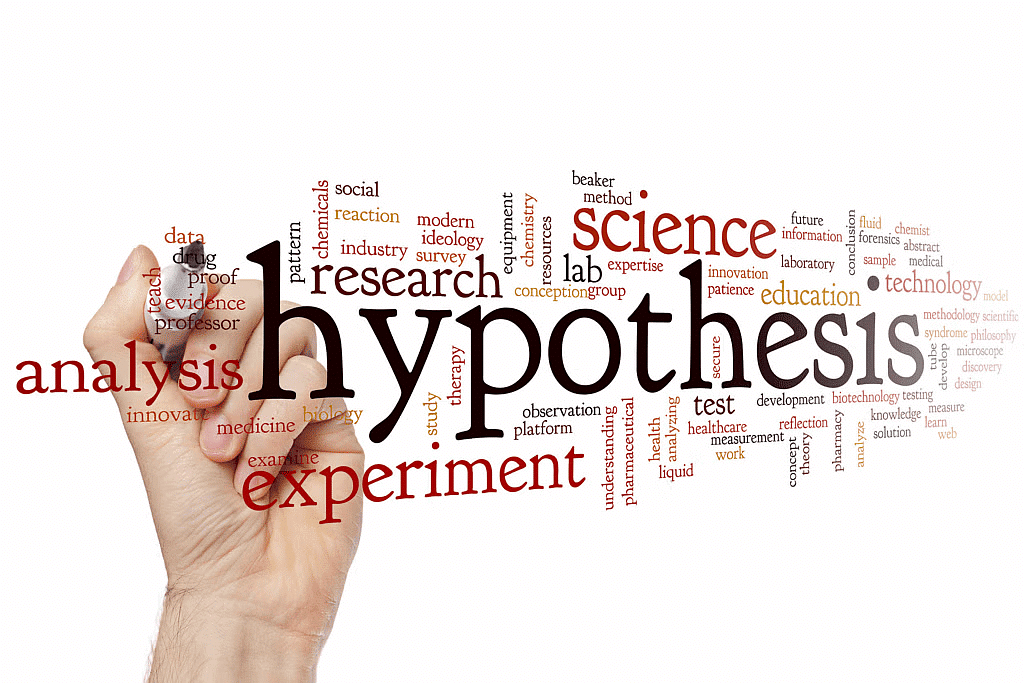Hypothesis - Research Aptitude Notes
| Table of contents |

|
| The Hypothesis in Research |

|
| Functions of Hypothesis |

|
| Sources of Hypothesis |

|
| Characteristics of Good Hypothesis |

|
| Types of Hypothesis |

|
The Hypothesis in Research
The hypothesis serves as a crucial research tool, essential for attaining reliable knowledge. It represents a presumptive statement or a reasoned conjecture drawn from existing evidence.

- The researcher aims to validate this assertion through their study.
- A hypothesis is crafted as a proposed solution to a research problem.
- The primary goal is for the subsequent study to either confirm or refute the hypothesis.
Examples:
- For instance, in a study investigating the effects of sleep on memory retention, a hypothesis could be: "Increased hours of sleep lead to improved memory consolidation."
- In a business context, a hypothesis might suggest that "Decreasing product prices will result in higher sales volume."
Functions of Hypothesis
- Hypothesis predicts the association or relationship between two or more variables
- hypothesis indicates what to look for in an investigation
- Instruct how to select a sample, choose a design of Research, how to collect data and how to interpret the results to draw valid conclusions.
- It helps in formulating the theory of Research
- It determines the domain and range of Research
- It enhances the objectivity in Research and simultaneously strengthens the claims of Research.
Sources of Hypothesis
The formulation of a good hypothesis is a difficult task. It requires a researcher to be speculative, imaginative having good knowledge, deep insight and an analytical mind. The sources that are available with a researcher for deriving a tenable hypothesis are as follows:
- Creativity and experience of the researcher helps in deriving an adequate hypothesis
- Background information about the topic is necessary , a rich background of knowledge enables the researcher to locate the key association among the variables. Hence, literature review is a major step of Research.
- A researcher must possess a versatile intellect to spot the contributing variables very quickly in a study, to creatively imagine the output or solution to the problem. Thus, an alert mind is capable of deriving a meaningful hypothesis and rejecting a faulty hypothesis.
- Analogies are a strong source for the formulation of Hypothesis and finding out solutions to the problem. Reasoning by analogy is based on similarities and differences between two situations in which a similar or the same phenomenon or event takes place.
- A systematic review and analysis of theories developed in the field of psychology, sociology, political science and even in biological sciences may help the researcher to provide a suggestive base to formulate a hypothesis.
 |
Download the notes
Notes: Hypothesis
|
Download as PDF |
Characteristics of Good Hypothesis

- It must be testable.
- It must state the expected relationship between the variables.
- It must be clear and stated in a precise manner.
- The Hypothesis should be limited in scope.
- A hypothesis must be consistent with known facts. It must be consistent with a substantial body of established facts.
- The Hypothesis should be amenable to testing within a reasonable time.
- It should be future-oriented that it should have the ability to predict future events.
- It should be able to prevent blind Research.
Types of Hypothesis
Null Hypothesis The null hypothesis, often symbolized as H₀, suggests that there is no significant effect or relationship between the variables under study. It represents a default position that indicates no association between variables or no difference among groups. Researchers do not actively develop it but rather test it to either accept or reject based on statistical evidence.
Directional and Non-Directional Hypothesis
- Directional Hypothesis: This hypothesis specifies the expected direction of the relationship or difference between variables. For example, it might predict that one group will score higher than another.
- Non-Directional Hypothesis: This hypothesis indicates that a relationship or difference exists between variables, but it does not specify the direction of this relationship. It simply suggests a difference or association without indicating which way it goes.
Declarative Hypothesis A declarative hypothesis is formulated as a clear, positive statement about the expected outcome. It asserts a specific relationship between variables, expressed in a straightforward manner. For instance, it might state that increased study time will lead to higher exam scores.
Complex Hypothesis This type of hypothesis involves multiple dependent and independent variables, highlighting their interrelations. For example, it could propose that consuming more fruits and vegetables results in multiple health benefits such as weight loss, improved skin health, and a reduced risk of various diseases.

Statistical Hypothesis Also known as confirmatory data analysis, a statistical hypothesis makes an assumption about a population parameter. This hypothesis is typically tested using statistical methods to determine whether there is enough evidence to support it.
Descriptive Hypothesis A descriptive hypothesis provides a statement regarding the characteristics of a variable, such as its existence, size, shape, or distribution. It prompts researchers to consider the broader implications of their findings, whether they are supported or rejected.
Relational Hypothesis This hypothesis describes the relationship between two variables. It can be categorized into:
- Correlational Hypothesis: This hypothesis asserts that two variables tend to occur together in a specific manner without implying causation. It suggests a correlation between the variables.
- Explanatory (Causal) Hypothesis: This hypothesis indicates a causal relationship, where one variable directly affects another.
Alternative Hypothesis Representing the opposite of the null hypothesis, the alternative hypothesis (H₁ or Hₐ) posits that there is a statistically significant effect or relationship between the variables. Researchers aim to gather evidence to support this hypothesis, proving that there is an important association between the variables under study.
|
17 videos|30 docs|9 tests
|
FAQs on Hypothesis - Research Aptitude Notes
| 1. What are the functions of a hypothesis in research? |  |
| 2. What are the sources of a hypothesis? |  |
| 3. What are the characteristics of a good hypothesis? |  |
| 4. What are the types of hypothesis? |  |
| 5. How can a hypothesis be formulated for a research study? |  |
















